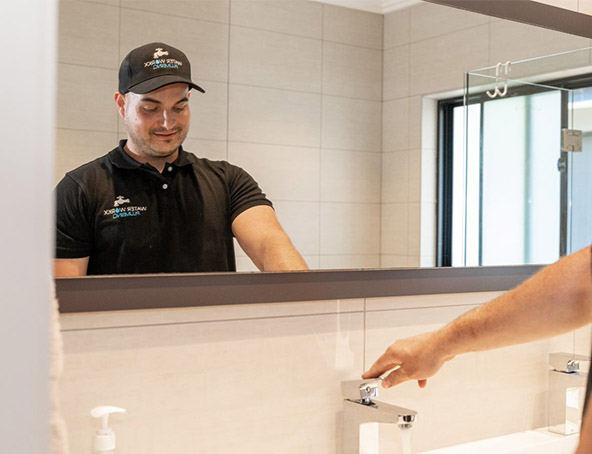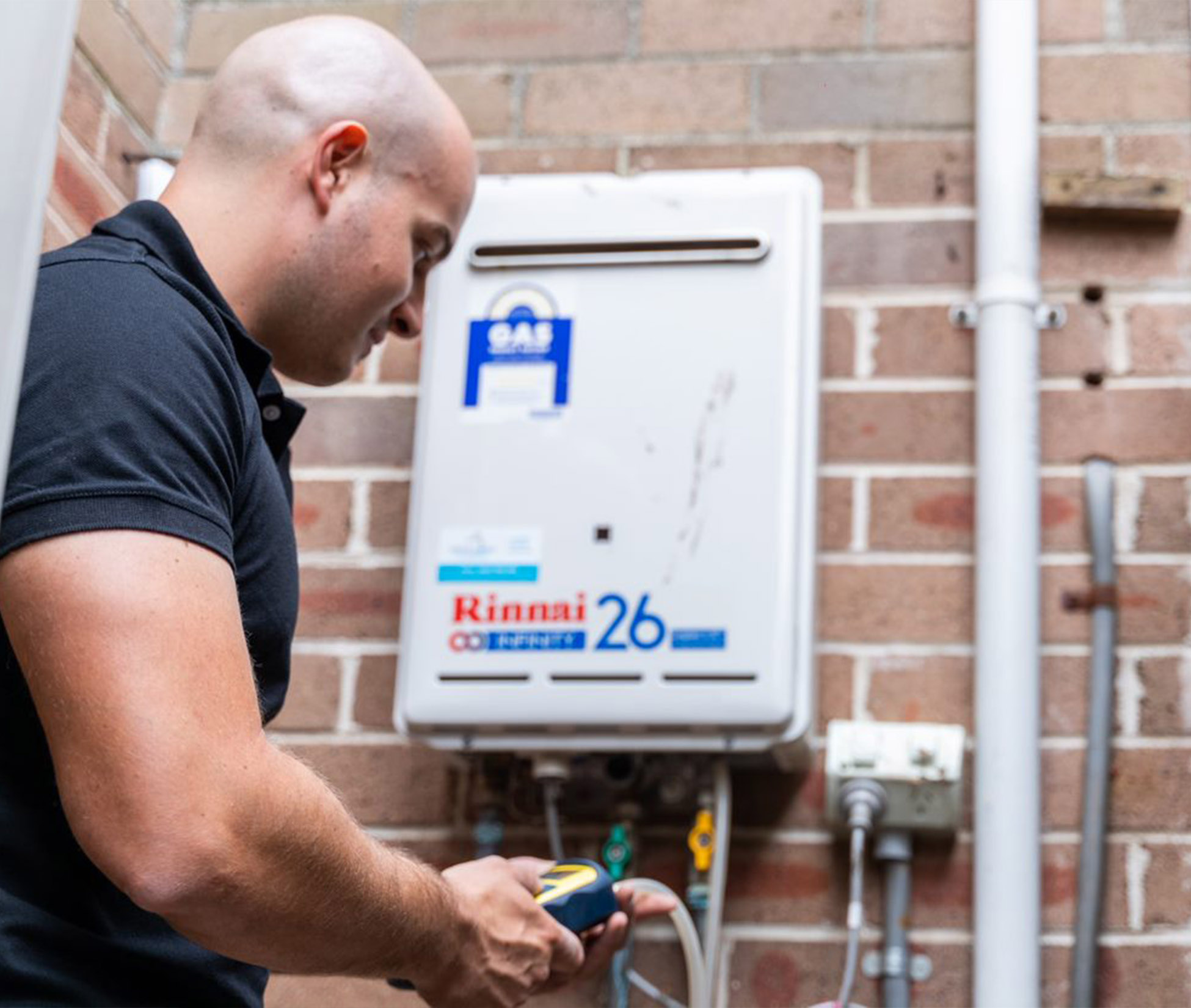Hot Water Options
Which One Is Best For Your Home
When it comes to hot water systems for your home, there are several options available, each with its own set of advantages and disadvantages. Choosing the right hot water system is crucial to meet your household’s needs while considering factors such as efficiency, energy source, and installation requirements.
In this blog, we will explore the six most common hot water options and provide recommendations on which one is best for different types of properties.

Hot Water Storage
Hot water storage systems, also known as storage tanks or traditional hot water systems, are the most common type found in many households. These systems consist of a large tank that stores and heats a specific amount of water, ready for use when needed.
Pros
- Relatively low upfront cost compared to other options
- Simplicity of design and ease of installation
- Suitable for homes with multiple hot water outlets
Cons
- Limited hot water supply as it depends on the tank size
- Longer wait times for hot water to reach the tap depending on location
- Regular maintenance required to prevent tank corrosion and sediment buildup
Recommended Property Type
Hot water storage systems are suitable for larger households with predictable hot water demands. They work well in properties where simultaneous hot water usage is expected, such as multi-story houses or homes with multiple bathrooms.
Instantaneous Hot Water
Instantaneous hot water systems, also known as tankless water heaters, on-demand water heaters, or continuous flow water heaters, heat water as it flows through the unit, providing hot water on demand.
Pros
- Endless supply of hot water as it heats water on demand
- Compact and space-saving design, ideal for smaller properties
- Reduced risk of water contamination from stored water
Cons
- Higher upfront and running costs due to water being heated on demand
- Limited flow rate which may not support multiple outlets simultaneously
- Installation may require upgrading the electrical system or gas lines
Recommended Property Type
Instantaneous hot water systems are well-suited for smaller properties or homes with limited space. They are an excellent choice for households with lower hot water demand and fewer simultaneous users, such as apartments, townhouses, or single-person households.
Gas Hot Water
Gas hot water systems use natural gas or propane as the energy source to heat water and are available in both storage and instantaneous options.
Pros
- Faster water heating compared to electric systems
- Lower gas emissions compared to electric systems
- Can provide hot water during power interruptions and blackouts
Cons
- Higher upfront costs for both installation and ongoing gas supply
- Storage systems may require additional venting and space for the gas combustion process
- Regular maintenance is necessary for safety and to prevent gas leaks
Recommended Property Type
Gas hot water systems are well-suited for properties that already have a natural gas connection and are particularly beneficial for larger households with high hot water demands, as well as areas prone to power outages.
Electric Hot Water
Electric hot water systems use electricity as the energy source to heat water. Similar to gas hot water systems, they are available in both storage and instantaneous variations.
Pros
- Lower upfront cost compared to gas systems
- Simple installation and minimal maintenance requirements
- Electric instantaneous systems can provide hot water to multiple outlets simultaneously
Cons
- Higher energy costs compared to gas systems
- Slower heating process, resulting in potentially longer wait times
- Higher environmental impact due to increased electricity consumption
Recommended Property Type
Electric hot water systems are suitable for properties without access to natural gas. They are commonly found in areas with reliable electricity supply and moderate hot water demand, such as small to medium-sized households or properties where gas connections are unavailable.
Heat Pump Hot Water
Heat pump hot water systems use electricity to transfer heat from the surrounding air to heat water, making them superbly energy efficient.
Pros
- Significantly lower energy consumption compared to electric storage systems
- Reduced gas emissions
- Can be installed indoors or outdoors depending on the model
- Potential to claim government rebates
Cons
- Higher upfront costs compared to electric storage systems
- Longer heating times compared to gas or electric systems
- These systems are considered large and can be fairly noisy
- Ambient temperature affects performance with decreased efficiency in colder temperatures
Recommended Property Type
Heat pump hot water systems are suitable for environmentally conscious homeowners looking for energy efficient solutions. They are ideal for properties with moderate hot water demand and can be installed in both warm and cool climates.
Solar Hot Water
Solar hot water systems utilise energy from the sun to heat water. They consist of solar panels that absorb solar radiation and transfer it to a storage tank.
Pros
- Excellent energy efficiency and reduced reliance on conventional energy sources
- Lower energy costs in the long run
- Long lifespan and low maintenance requirements
Cons
- Dependent on sunlight with reduced performance on cloudy days
- Additional roof space required for solar panel installation
- Backup systems (electric or gas) may be necessary during extended periods of low sunlight
Recommended Property Type
Solar hot water systems are recommended for environmentally conscious homeowners willing to make a long-term investment. They are ideal for properties with ample roof space, good sun exposure, and moderate hot water demand.
The Verdict
There’s no one right answer – selecting the right hot water option for your home involves considering factors such as your property size, hot water demand, budget, and environmental priorities. Hot water storage systems are suitable for larger households with consistent usage, while instantaneous systems are ideal for smaller properties with lower demand.
Gas, electric, heat pump, and solar options provide different efficiencies and energy sources, catering to specific needs and environmental concerns. By getting in touch with Water Workx Plumbing, we can assess your requirements and help you make an informed decision that ensures optimal hot water supply for your home.

